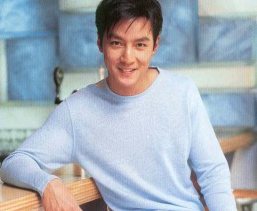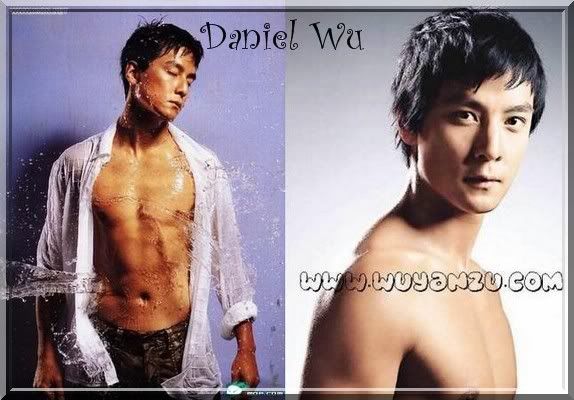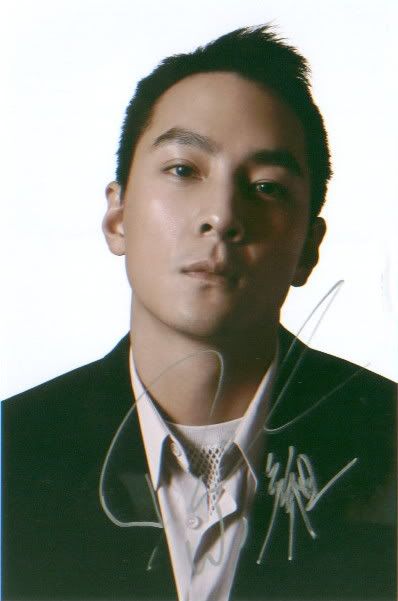
Daniel Wu Wallpapers
Daniel Yin-Cho Wu (traditional Chinese: 吳彥祖; simplified Chinese: 吴彦祖; pinyin: Wú Yànzǔ; jyutping: Ng Yin Jou) is an American film actor, director, and producer, known for his work in Hong Kong. Since his film debut in 1998, he has been featured in over 40 films. Wu has been called "the young Andy Lau," and is known as a "flexible and distinctive" leading actor in the Chinese-language film industry

Wu was born in Berkeley, California, and raised in Orinda, California. Wu developed an interest in martial arts at age 6, when he saw Jet Li in The Shaolin Temple and consequently began studying the form known as wushu at age 11. His childhood role model was Jackie Chan, a man who now considers Wu "like a son." Wu attended the Head-Royce School in Oakland, California and later majored in architecture at the University of Oregon. While there, he founded the University of Oregon Wushu club in 1994 and served as the team's first coach. During this time, Wu also took film classes and frequented local theaters, and came to enjoy the works of filmmakers like Akira Kurosawa and Luc Besson, who he describes as "men of vision." Following graduation, Wu traveled in 1997 to Hong Kong to witness the handover of Hong Kong, with no intention of taking on a movie career. At the suggestion of his sister, Wu began modeling . Four months later, film director Yonfan, after seeing Wu featured in a clothing ad at an MTR station, approached Wu about starring in an upcoming movie.

Despite his inability at the time to speak the Cantonese dialect of Hong Kong or read Chinese, Wu successfully completed his first movie, Yonfan's Bishonen in 1998. The day after Bishonen wrapped, Wu was offered the leading role in Mabel Cheung's City of Glass (for which Wu was nominated as best new actor at the 18th Hong Kong Film Awards), and later, a supporting part in Young and Dangerous: The Prequel, from Andrew Lau's gangster film series. Around this time, Wu met superstar Jackie Chan at a restaurant opening and was quickly signed to Chan's JC Group with agent Willie Chan. Wu's breakthrough performance came in 1999 with his role in Benny Chan's Gen-X Cops. He followed this success with roles in a variety of movies including big-budget thriller Purple Storm, art-house production Peony Pavilion, and the extremely successful Love Undercover. In 2001, Wu received criticism from the Hong Kong media for sexual scenes with Suki Kwan in Cop on a Mission, but Wu says that same criticism attracted the attention of directors and the film represented a turning point in the types of roles he chose in the future.
Wu's first experience in film production came with his starring role in Julian Lee's 2003 film, Night Corridor. Due to budgetary constraints, Wu also participated in the finding funding for and distribution of the film, and recruited Jun Kung to create the soundtrack. Though Night Corridor dealt with "risky" themes, Wu felt he had less reliance on image than many of his pop-star actor peers, and he was nominated for best actor at Taiwan's 40th Golden Horse Film Awards for his effort. During 2003, Wu also took part as producer and creative director on "MTV's Whatever Things!", a "Jackass"-styled program aired in Asia,also featuring Sam Lee, Josie Ho, Terence Yin, and other celebrities. Also during 2003, Wu took part in a stage production of The Happy Prince at the Edward Lam Dance Theater as part of the Hong Kong Arts Festival, during which he recited a 16-minute monologue in Cantonese, learned entirely from pinyin.In 2005, Wu was nominated as best actor at the 24th Hong Kong Film Awards for his role in Derek Yee's One Night in Mongkok and as best supporting actor for New Police Story. At the 41st Golden Horse Film Awards, Wu won the award for best supporting actor for New Police Story.The win came as a surprise to him, because he "didn't think that much" of his performance in the film.
In 2005, Chinese media began to report that Wu had formed a boyband, Alive, with Terence Yin, Andrew Lin, and Conroy Chan. Wu and his band mates posted information, updates, personal thoughts (including slamming Hong Kong Disneyland, for which they were spokespersons), and the band's music, at their official website. The band performed in front of 20,000 fans at the Yepp Channel[V] Yepp T8 Crazy Summer Concert Tour in Hong Kong, Taiwan, and Shanghai. In 2006, Wu made his writing and directorial debut with The Heavenly Kings, which chronicles Alive's formation and exploits on the Channel tour. After the film's release, however, it was revealed that The Heavenly Kings was actually a mockumentary of the Hong Kong pop music industry, and Alive was constructed purely as a vehicle to make the movie; the film's characters represented only 10-15% of their real-life counterparts and much of the footage blurred the line between fiction and reality. Wu admitted his own singing voice "sucked really bad," and the band had their voices digitally enhanced for its music, to prove that "it's easy to fake it." Despite some backlash from the media over being intentionally fed false information in the movie about illegal downloads of the band's music, Wu won the best new director award at the 26th Hong Kong Film Awards, an achievement he called "a group effort.
Wu's first experience in film production came with his starring role in Julian Lee's 2003 film, Night Corridor. Due to budgetary constraints, Wu also participated in the finding funding for and distribution of the film, and recruited Jun Kung to create the soundtrack. Though Night Corridor dealt with "risky" themes, Wu felt he had less reliance on image than many of his pop-star actor peers, and he was nominated for best actor at Taiwan's 40th Golden Horse Film Awards for his effort. During 2003, Wu also took part as producer and creative director on "MTV's Whatever Things!", a "Jackass"-styled program aired in Asia,also featuring Sam Lee, Josie Ho, Terence Yin, and other celebrities. Also during 2003, Wu took part in a stage production of The Happy Prince at the Edward Lam Dance Theater as part of the Hong Kong Arts Festival, during which he recited a 16-minute monologue in Cantonese, learned entirely from pinyin.In 2005, Wu was nominated as best actor at the 24th Hong Kong Film Awards for his role in Derek Yee's One Night in Mongkok and as best supporting actor for New Police Story. At the 41st Golden Horse Film Awards, Wu won the award for best supporting actor for New Police Story.The win came as a surprise to him, because he "didn't think that much" of his performance in the film.
In 2005, Chinese media began to report that Wu had formed a boyband, Alive, with Terence Yin, Andrew Lin, and Conroy Chan. Wu and his band mates posted information, updates, personal thoughts (including slamming Hong Kong Disneyland, for which they were spokespersons), and the band's music, at their official website. The band performed in front of 20,000 fans at the Yepp Channel[V] Yepp T8 Crazy Summer Concert Tour in Hong Kong, Taiwan, and Shanghai. In 2006, Wu made his writing and directorial debut with The Heavenly Kings, which chronicles Alive's formation and exploits on the Channel tour. After the film's release, however, it was revealed that The Heavenly Kings was actually a mockumentary of the Hong Kong pop music industry, and Alive was constructed purely as a vehicle to make the movie; the film's characters represented only 10-15% of their real-life counterparts and much of the footage blurred the line between fiction and reality. Wu admitted his own singing voice "sucked really bad," and the band had their voices digitally enhanced for its music, to prove that "it's easy to fake it." Despite some backlash from the media over being intentionally fed false information in the movie about illegal downloads of the band's music, Wu won the best new director award at the 26th Hong Kong Film Awards, an achievement he called "a group effort.

Wu's parents, George (a retired engineer) and Diana (a college professor) are natives of Shanghai, China. His father immigrated to the United States after the Communist takeover of China in 1949, and met his mother in New York, where she was a student. After marrying they settled in California. Wu also has two older sisters, Greta and Gloria. Wu once had a romantic relationship with model/actress Maggie Q. The pair broke up in 2001.He is currently in a long-term relationship with model Lisa S., and maintains residences in Hong Kong, Shanghai, and Beijing. He continues to actively train in wushu as well as other Martial Arts








No comments:
Post a Comment
Dear Visitor,
Please feel free to give your comment. Which picture is the best?
Thanks for your comment.